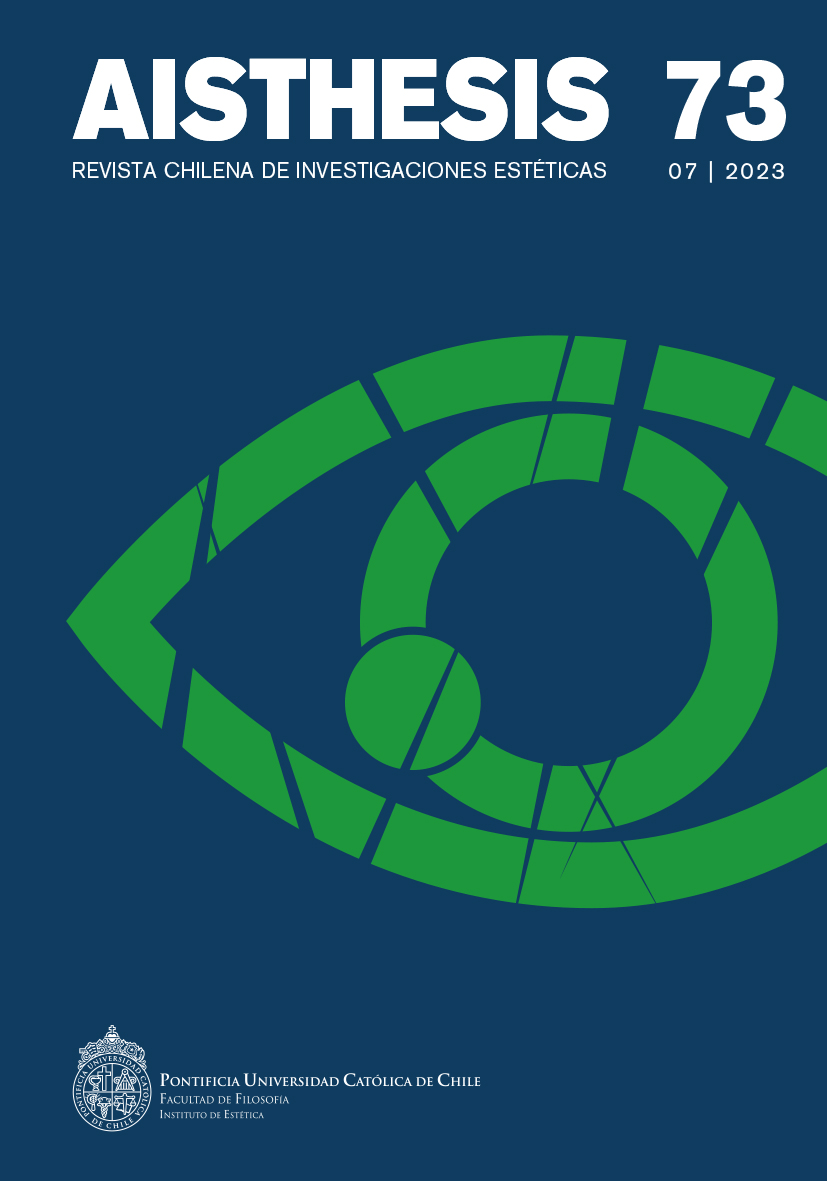Weavers in the dark (knitting a cosmic symphony): Notes on the Arachnid Work of Tomás Saraceno
Main Article Content
Abstract
The present study examines examines the arachnid work of the artist Tomás Saraceno— Galaxies Forming along Filaments; Hybrid Webs; Arachnid Orchestra —in light of its affinity with ideas proposed by Quentin Meillassoux and Timothy Morton as answers to the non-human turn in contemporary thought and arts. I argue that Saraceno’s work, in its different stages—reticular, hybrid and bioacoustic—, not only renders hierarchies inoperative between types of knowledge, but destabilizes presupposed notions about artistic authorship, agency and technic. The junction between animal and technological, human and non-human in a symbiotic making of this work makes it necessary to reconsider the concept of creation, in order to re-establish that reconciliation between poiesis and physis which Heidegger had already proposed. In each and every stage of Saraceno’s artistic collaboration with spiders, we see a movement towards an ethic of objects without hierarchy that points to the direction of an axiology that inverts the universe of the formal (from the concept of formless of Georges Bataille) in order to liberate art from the supremacy of the visual and the human.
Downloads
Article Details

This work is licensed under a Creative Commons Attribution-NonCommercial-ShareAlike 4.0 International License.
All contents of this electronic edition are distributed under the Creative Commons license of "Attribución-shareAlike 4.0 Internacional" (CC-BY-SA). Any total or partial reproduction of the material must mention its origin.
The rights of academic works published in this publication belong to their authors., who grant to AISTHESIS: Revista Chilena de Investigaciones Estéticas the license for its use. The management of the permits and the authorization of the publication of the images (or of any material) that contains copyright and its consequent rights of reproduction in this publication is the sole responsibility of the authors of the articles
